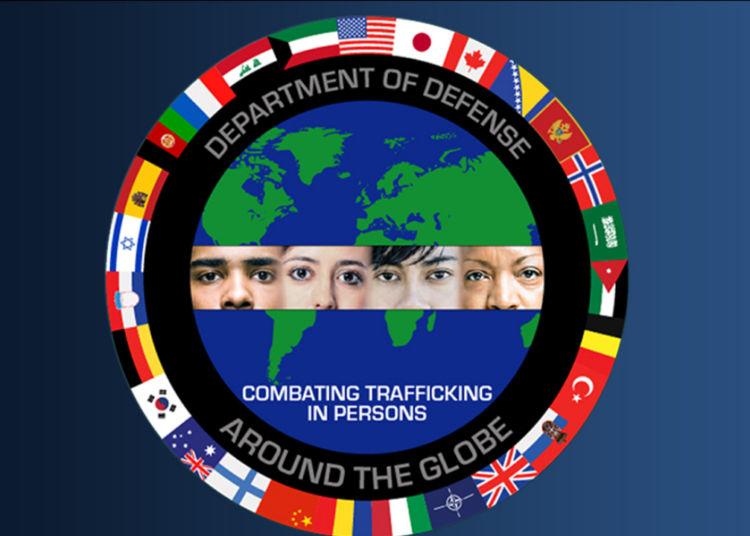Trafficking in persons remains, even with the effort of the National Agency for the Prohibition of Trafficking in Persons (NAPTIP), a worrisome phenomenon. The recent revelation by NAPTIP that over 25,000 trafficked Nigerian women and girls are trapped in Mali has sent shockwaves throughout the nation. The figures presented by NAPTIP reflect the grim reality of human trafficking in Nigeria.
According to the Commander of the Benin Zone of NAPTIP, Nduka Nwanwenne, Nigerian women and girls are enticed to Mali due to the allure of Malian men’s greater spending power and their fascination with Nigerian women, who are often referred to as the “giant of Africa.”
These statistics, along with the alarming number of human traffickers arrested and victims rescued, highlight the urgent need for action to prevent this pervasive crime from claiming more innocent lives. It is embarrassing to note that Nigerian trafficking victims are exploited not only within the borders of their homeland but also far beyond.
The Director General of NAPTIP, Prof. Fatima Waziri-Azi, identified Libya, the United Arab Emirates, Ghana, Cote d’Ivoire, and India as the top five countries where Nigerians are trafficked. This sobering revelation demands a comprehensive approach involving bilateral agreements, international cooperation, and increased diplomatic effort.
The memorandum signed between Nigeria and The Gambia serves as a commendable step in this direction. It aims to prevent, suppress, and punish trafficking in persons, especially women and children. Such collaborations, in the opinion of this newspaper, foster collective strength and enhance the effectiveness of anti-trafficking measures.
Furthermore, we suggest that it is time for the current NAPTIP boss to adopt a more proactive approach to address this pressing issue and put an end to the traction gained by human trafficking. While families may perceive it as an empowerment opportunity due to prevailing socioeconomic challenges, we, however, consider it disconcerting that religious leaders, native doctors, and some traditional rulers encourage such practices.
In the effort to combat this trade in human persons, we commend the role of Oba of Benin in checking this disgraceful trade. But to effectively address the crisis of human trafficking, it is our opinion that strategic sensitization efforts must be intensified, targeting its root causes and socio-economic factors.
Recognizing the pivotal role of the media in creating awareness and protecting victims, NAPTIP, in collaboration with FIIAPP and A-TIPSOM, organized a workshop for media professionals. The workshop was designed to enhance their capacity to educate the public about the dangers of human trafficking.
Participants emphasized the importance of tackling human trafficking and underscored the media’s influential role as a channel for spreading awareness. Similarly, media organisations were called upon to rise to the occasion and become champions of this cause by dedicating resources to investigative journalism, in-depth reporting, and impactful campaigns to expose the dangers of human trafficking and its devastating consequences.
To effectively tackle human trafficking, it is vital, in our view, to examine successful strategies implemented by other countries. Several nations have demonstrated commendable efforts and achieved notable progress in combating this crime. By adopting best practices and tailoring them to Nigeria’s context, NAPTIP can enhance its effectiveness and strengthen the fight against human trafficking.
The “Nordic Model” pioneered by Sweden is an exemplary approach that focuses on addressing the demand for trafficked individuals. It criminalizes the purchase of sex while decriminalising individuals who are prostituted. This model recognises that the majority of trafficking victims are forced into sexual exploitation and aims to shift the responsibility from victims to the perpetrators and buyers.
Norway has implemented a comprehensive approach to combating human trafficking, focusing on prevention, protection, and prosecution. They have strengthened laws and law enforcement, increased funding for victim support services, and implemented prevention programs targeting vulnerable populations.
Thailand, on its part, has made significant progress in combating human trafficking, particularly in the context of sex trafficking and child exploitation. They have implemented strict anti-trafficking laws, established specialized law enforcement units, and increased penalties for offenders. Thailand has also prioritised victim support and rehabilitation programs, providing safe shelters, healthcare, and vocational training to survivors.
The United States has implemented a multi-faceted approach to combat human trafficking, including strong legislation, law enforcement efforts, victim support services, and public awareness campaigns. These examples from around the world provide valuable lessons for Nigeria in its fight against scourge.
It is disturbing, in our opinion, that staggering number of Nigerian women and girls are trapped in trafficking networks. While the current NAPTIP boss and stakeholders have made commendable efforts, a more proactive approach is necessary to address the root causes of trafficking and prevent its proliferation.
Drawing inspiration from successful approaches in other countries, Nigeria can implement a comprehensive strategy that encompasses legislation, law enforcement, victim support services, prevention programmes, and public awareness campaigns.
Additionally, we are persuaded to point out that close collaboration with international partners, as exemplified by the memorandum signed between Nigeria and The Gambia, will strengthen efforts to combat cross-border trafficking networks.





